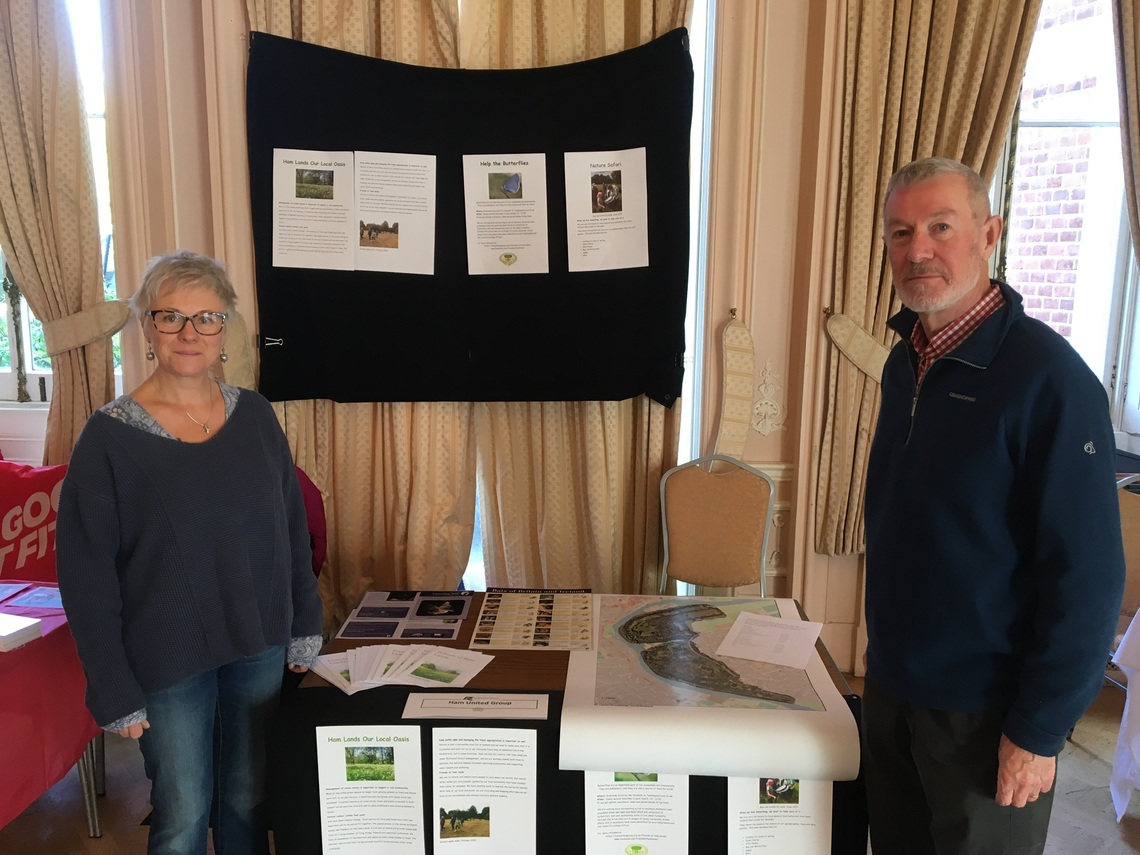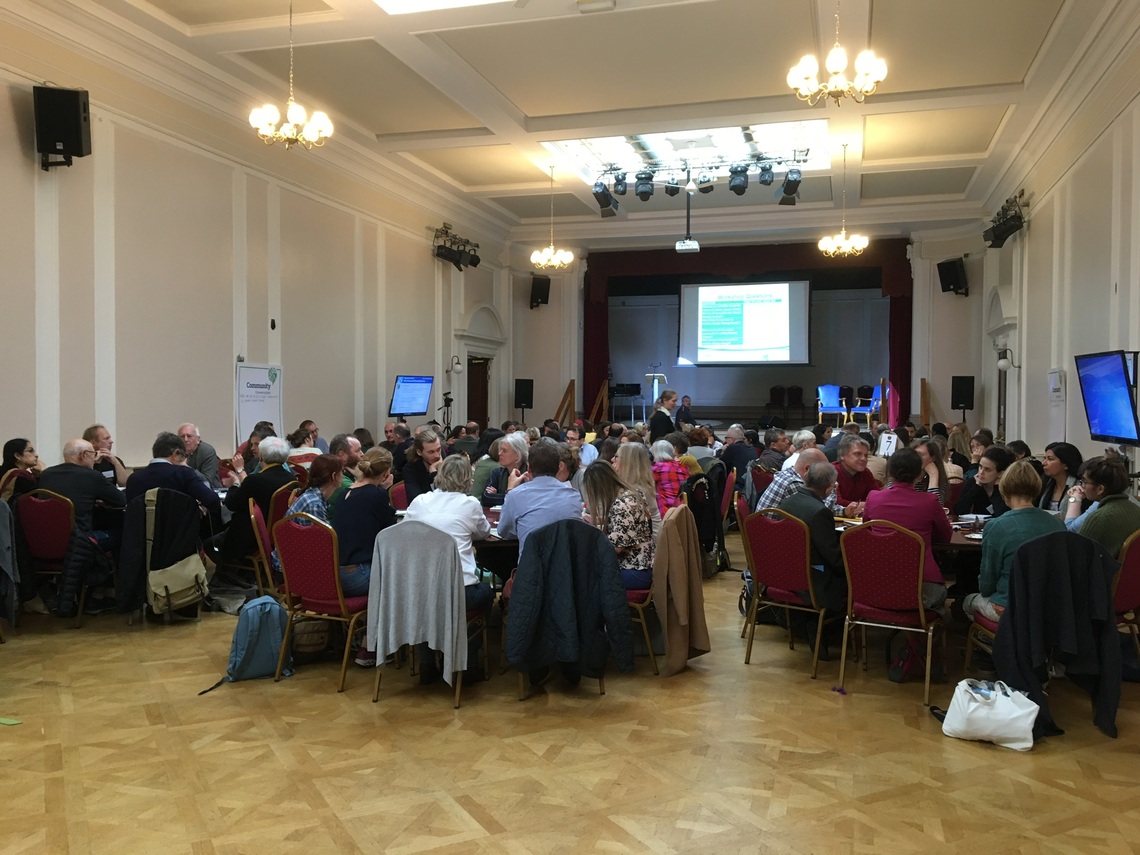Richmond Borough has joined a growing international movement by declaring a climate emergency. The council has also directed staff to consult with the public on recommended revisions to the borough’s greenhouse gas (GHG) emission reduction targets and other climate action strategies.
We were very pleased to get invited to Climate Change Summit in October 2019. FoHL had a stand along with several other organisations that are actively involved in trying to protect the environment we live in, make it better and engage with the community. We also facilitated discussion groups. There was a great deal of passion, energy and commitment in the room on that day. To read more about it please click here
Sufiyo Andersson and Chris Ruse at our stall
Sharon Mehta was one of the facilitators for the Climate change discussions
140 people took part in a discussion on how we use resources. This included discussion about how our the way we use the land, waterways and surrounding oceans and seas is having a huge impact on the number of living things that can survive together (biodiversity). An increase in carbon dioxide in the air is resulting in increased temperatures and climate change. Hotter temperatures and erratic weather patterns also have an impact on biodiversity.
Nature has a remarkable way of adapting and helping to address problems. But we need rich biodiversity to enable that to happen. Plants and fungi can absorb huge amounts of carbon dioxide. Plants provide homes and food for a huge number of living things, as well as being critical for our survival.
In turn, the animals and fungi support the plants by pollinating, distributing seeds, or by helping to feed or protect them. Left to nature, most plants have fungi associated with their roots that help them collect water and help to feed and protect them.
We will share more information on how we can all make a difference as the reports from the summit are prepared.
In the meantime, FoHL will focus on our work to support the biodiversity on Ham Lands.


